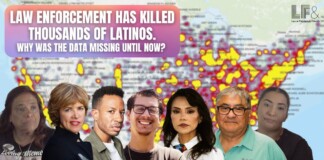Is the Supreme Court decision in Dobbs v. Jackson Women’s Health a death sentence for women of color? The overturning of Roe v. Wade not only creates an abortion disaster for millions of Americans, it also exacerbates a maternal healthcare crisis that’s alreadly deadly for women of color. African American women are shockingly likely to die or almost die — in pregnancy and childbirth, New York Times contributor Linda Villarosa discovered, and that’s true regardless of their health, education and wealth. What’s their future now that more women will be forced to carry more babies to term against their will? Linda Villarosa’s new book is Under the Skin: The Hidden Toll of Racism on American Lives and on the Health of Our Nation. She’s also a professor at the Craig Newmark Graduate School of Journalism at the City University of New York with a joint appointment at City College.
“If we think of the end of Roe v. Wade, as the end of abortion only, that is way too limited. Abortion is not a single issue. Abortion is a constellation of having no access to abortion, it is about reproduction and even healthcare at this point, broadly and not narrowly.” – Linda Villarosa
“The Black feminist demand hasn’t changed. It’s those three elements: the right to have a child, the right not to have a child and the right — if you choose to have a child — to have a safe, healthy environment.” – Linda Villarosa
Guests:
- Linda Villarosa: Author, Under the Skin: The Hidden Toll of Racism on American Lives & On the Health of Our Nation
Prefer to Listen?
Subscribe to our podcast to listen to this week’s episode on your favorite podcast platform.
Transcript
Want More Coverage?
Head to our Patreon for a list related episodes and articles. And check out our full Gender & Sexuality library on YouTube.
Accessibility
The Laura Flanders Show is committed to making our programming, website and social media as accessible as possible to everyone, including those with visual, hearing, cognitive and motor impairments. We’re constantly working towards improving the accessibility of our content to ensure we provide equal access to all. If you would like to request accessibility-related assistance, report any accessibility problems, or request any information in accessible alternative formats, please contact us.
















